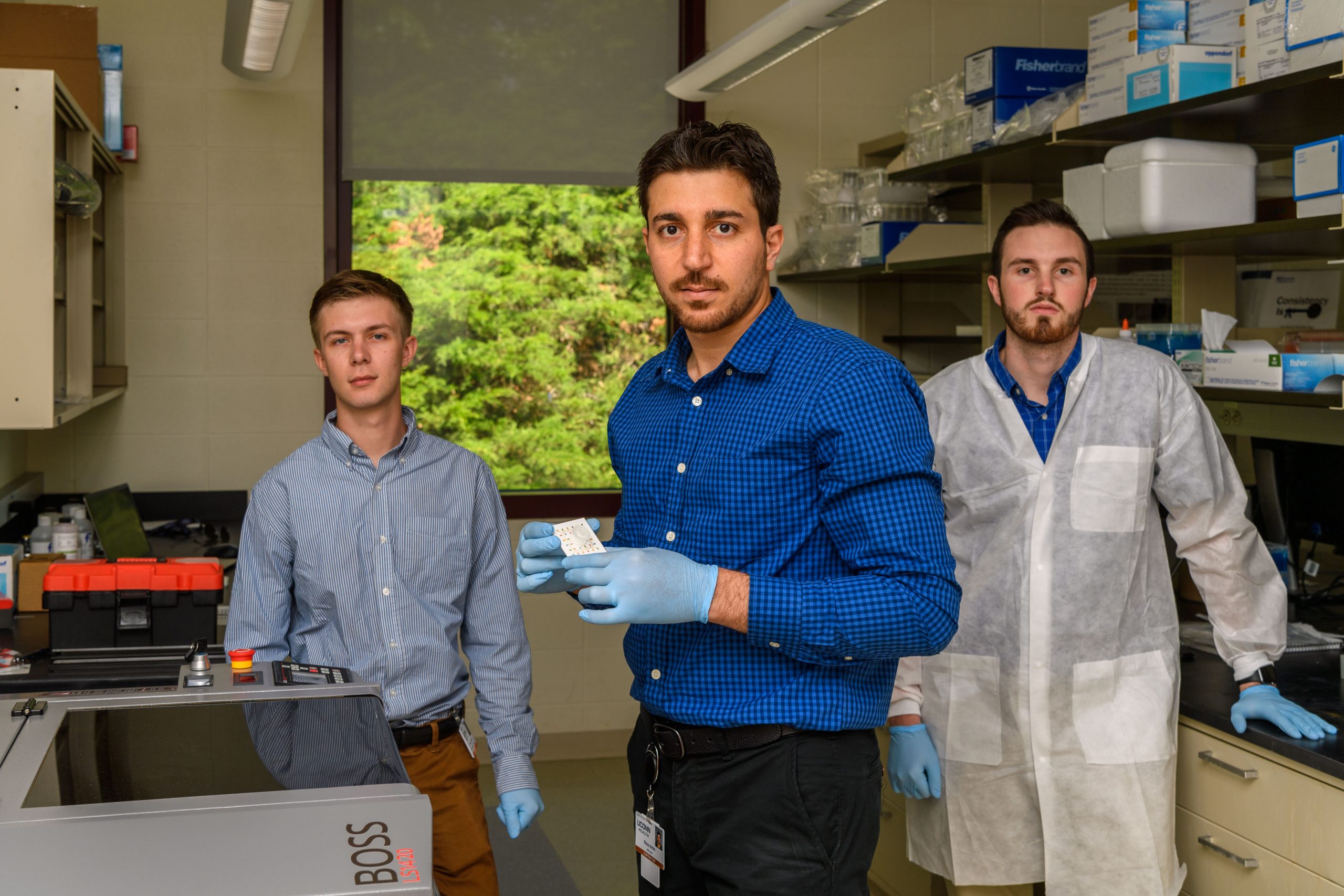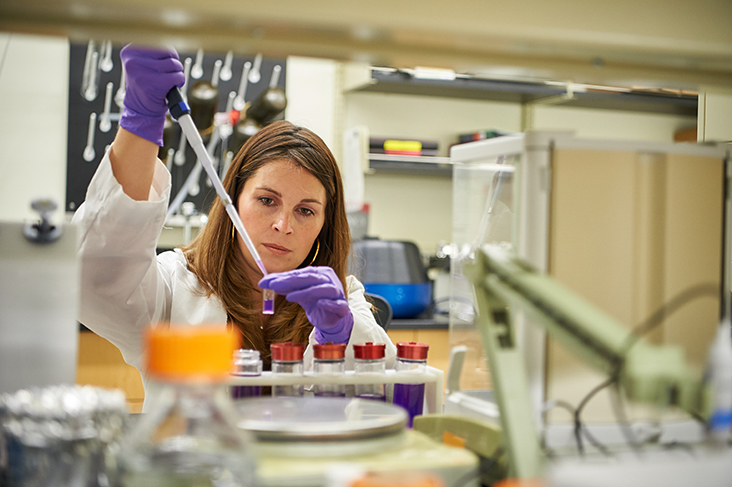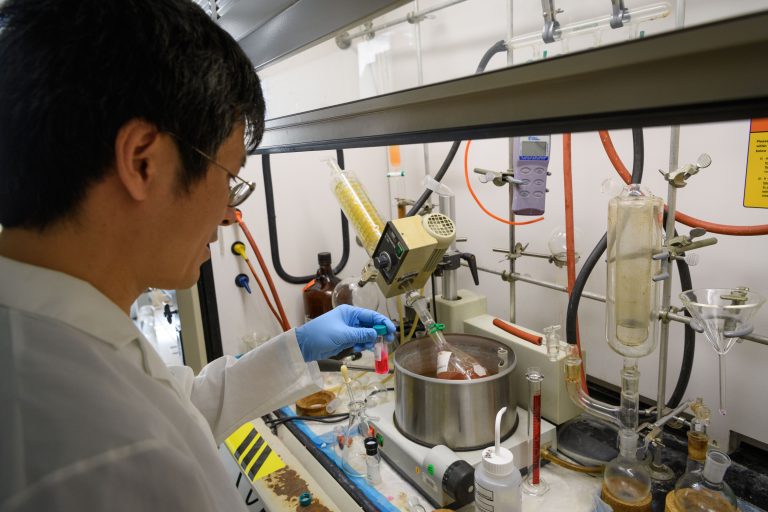The entrepreneurial spirit at UConn has led to the launch of high potential startups across a variety of industries. Faculty, students, and alumni have grasped the resources available to help turn their ideas into products and services that improve lives. Learn about some of the UConn-supported businesses make a lasting impact on Connecticut’s economy and the future of industry.
Aqualumos
Aqualumos is developing photocatalysis based technologies that break down toxic PFAS and eliminate them from the ecosystem. Our technology protected by a patent pending, with additional patents in the pipeline. There are other solutions on the market that can filter out PFAS from water. However, these solutions do not destroy the PFAS and generate a new waste stream in the form of toxic sludge or impregnated media. These must be disposed off either in landfills, from where the PFAS can leach into the groundwater, or via incineration, which could end up putting the chemical back into the atmosphere. What you end up with is an endless cycle where PFAS moves from one medium to the other but never leaves the ecosystem. Our approach aims to end this endless cycle. We are pursuing an aggressive timeline for technology development and production readiness.
Learn more about us here


Bastion
Bastion is developing an in-home device with a smartphone-based automated analyzer to measure semen quality. The testing process requires the user to load a semen sample on a disposable paper-based device, which reacts with the reagents in test zones on the paper and produces an array of colors; the user then images the result with his smartphone. From this point on, the process is automated: the smartphone rapidly returns measurements of sperm count, sperm motility, fructose, and pH.
Encapsulate
Encapsulate is developing an automated tumor-on-a-chip system that can grow patients cancer cells outside the body, and test the efficacy of chemotherapeutic drugs against them to advocate for the best course of treatment. This can help the oncologists in deciding the first-line of treatment for patients prior to starting treatment. Using this platform and choosing the most efficient cancer drug from the beginning will I) reduce the number of chemotherapy cycles a patient undergoes, II) lower the costs and duration of treatment, III) increase the success rates of treatment, and IV) improve the patient’s overall quality of life. Our mission is to offer personalized cancer therapy screening in the most accurate, expedited, and cost-effective manner.


LambdaVision
LambdaVision Inc. was based on research by Robert Birge, professor emeritus in UConn’s Department of Chemistry. He first considered using bacteriorhodopsin, a light-activated protein, more than 15 years ago to correct age-related blindness. Today, LambdaVision is commercializing its technology in the hopes of restoring vision for millions of patients suffering from retinitis pigmentosa and age-related macular degeneration. The company is led by UConn alumni CEO Nicole Wagner and CSO Jordan Greco, who were both former students in Birge's lab. LambdaVision has raised funding from Connecticut Innovations and recently won a $5M award from NASA. They have taken advantage of many of UConn's entrepreneurship programs and are located in the UConn Technology Incubation Program (TIP) facility in Farmington.
Potentiometric Probes
Potentiometric Probes develops and supplies voltage-sensitive dyes for academic and pharmaceutical industry researchers. These fluorescent dyes are used to stain cells, tissues, and whole organs and allow electrical activity of the brain and heart to be studied optically using microscopes. Voltage-sensitive dyes are used in basic research, as well as for drug discovery and cardiac safety screening of developmental drugs. Potentiometric Probes is developing new voltage-sensitive dye technology that promises to have rapid response as well as high sensitivity for the highest resolution and most informative optical voltage recordings possible.

